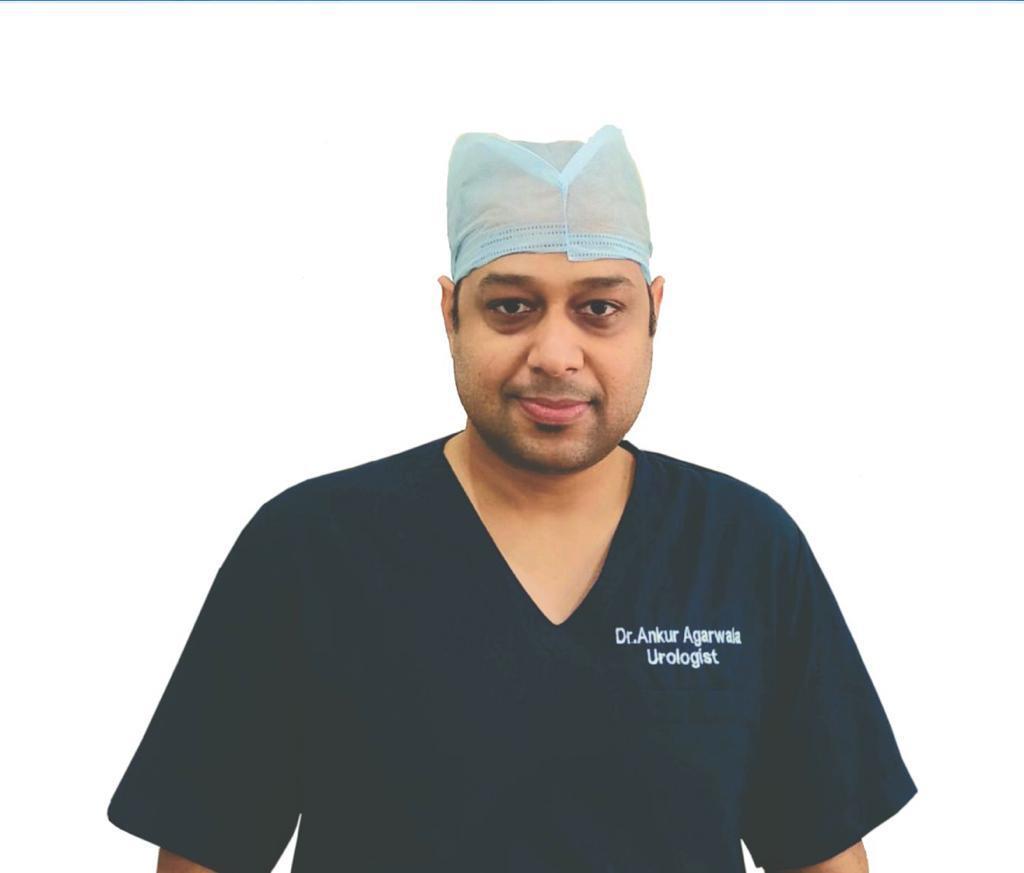Search Result: 10

Dr Amlan Jyoti Sarmah
MBBS,MS DNB,(Urology) IKDRC - Ahmedabad
Registration No
4651325
Language
English, অসমিয়া, বাংলা, हिंदी

12 years experience overall

Guwahati , Guwahati
MON, WED, FRI, SAT(09:00 AM-03:00 PM)

Dr Ankur Agarwala
MS,DNB (Urology), Renal Transplant (Medanta Medicity,Delhi NCR)
Registration No
2014145
Language
English, অসমিয়া, বাংলা, हिंदी

10 years experience overall

Guwahati , Guwahati
MON- SAT(10:00 AM-04:00 PM)

Dr Chandan Phukan
MBBS, MS (Surgery), Mch (Uro), FRCS (Uro)
Registration No
6077584
Language
English

10 years experience overall

Paschim Boragaon , Guwahati
MON- SAT, MON- SAT(09:00 AM-05:30 PM)

Dr Joy Narayan Chakraborty
MS,FRCS Edin,FACS,DNB(Surgery),DNB(Urology)
Registration No
1939319
Language
English

17 years experience overall

Paschim Boragaon , Guwahati
WED, WED(02:30 PM-05:00 PM)

Registration No
2677630
Language
English, বাংলা

25 years experience overall

Guwahati , Guwahati
MON- SAT(03:00 PM-05:00 PM)

Dr Sajidul Mazumdar
MBBS, M.S, Mch (Urology)
Registration No
4329108
Language
English, অসমিয়া, বাংলা, हिंदी

5 years experience overall

Paschim Boragaon , Guwahati
MON- SAT, MON- SAT(12:00 PM-05:00 PM)

Dr Syed Wasim Hasan
MBBS, MS, M.Ch.
Registration No
5159789
Language
English, हिंदी

9 years experience overall

Paschim Boragaon , Guwahati
MON, THU- SAT, MON, THU- SAT(11:00 AM-04:00 PM)

Dr Bikash Bawri
MS, MCH, FMAS
Registration No
4164602
Language
English, অসমিয়া, हिंदी

9 years experience overall

Zoo Road Guwahati , Guwahati
MON- SAT(10:00 AM-11:00 AM)

Dr Debango Sarma
MS, MCH (URO) AIIMS
Registration No
2039283
Language
English

10 years experience overall

Guwahati , Guwahati
SAT(03:00 PM-04:00 PM)

Dr Saumar Jyoti Barauh
MBBS, MS, MCh
Registration No
3979451
Language
English, অসমিয়া, বাংলা, हिंदी

35 years experience overall

Guwahati , Guwahati
MON- THU(10:30 AM-11:30 AM)
Frequently Asked Questions for Circumcision in Guwahati
There are different methods of circumcision, including the conventional surgical method and newer techniques like the Plastibell or laser circumcision. The best method depends on various factors, such as the patient’s age, the surgeon’s preference, and individual circumstances. Your doctor will determine the most suitable method for you.
Circumcision is generally considered a minor surgical procedure. While complications are rare, it is still important to choose an experienced surgeon and follow post-procedure care instructions to minimise any potential risks.
Yes, you can urinate after circumcision. However, you may experience some discomfort or pain while urinating for a few days after the procedure. This is normal and should improve with time.
Men may choose to get circumcised for various reasons, including religious or cultural beliefs, personal hygiene, prevention of certain medical conditions (such as recurrent infections or phimosis), or cosmetic preferences.
Circumcision surgery is typically performed under anaesthesia, so you should not feel any pain during the procedure. After the procedure, there may be some discomfort or mild pain, which can be managed with pain medications prescribed by your doctor.
Choosing the best hospital for circumcision depends on various factors such as the reputation of the hospital, the availability of experienced doctors, and the quality of care provided.
The best age for circumcision can vary depending on cultural, religious, or personal preferences. It can be performed during infancy (within the first month), childhood, or adulthood.
Post-procedure care for circumcision involves keeping the area clean and dry, applying antibiotic ointment as advised, and avoiding strenuous activities or sexual intercourse for a few weeks.
The procedure itself usually takes about 30 minutes to an hour.
The recovery time for circumcision varies from person to person. Generally, it takes about one to two weeks for complete healing.
Preparation for circumcision may include fasting before the procedure and avoiding certain medications that can increase bleeding risk. Your doctor will provide specific instructions on how to prepare for the procedure.
To find the best doctors for circumcision, you can ask for recommendations from your primary care physician, friends, or family members. You can also research and read reviews about doctors in your area who specialise in this procedure.
Circumcision is generally considered a safe procedure with a high success rate. The overall success rate depends on various factors, including the experience and skill of the surgeon.
A doctor who performs circumcision should be a trained and experienced surgeon. They may be a urologist, paediatric surgeon, or a general surgeon with expertise in this procedure.
Circumcision can be performed by urologists, paediatric surgeons, or general surgeons. It is important to choose a doctor who has experience and expertise in performing this procedure.
Circumcision is a surgical procedure that involves the removal of the foreskin, which is the protective skin covering the head of the penis. It is typically done for cultural, religious, or medical reasons.
Related Procedures in Guwahati
Related Treatments in Guwahati
Other Specialities in Guwahati
- Best Urologist in Guwahati
- Best Pulmonologist in Guwahati
- Best General Physician in Guwahati
- Best Endocrinologist in Guwahati
- Best Cardiologist in Guwahati
- Best Oncologist in Guwahati
- Best Radiologist in Guwahati
- Best Orthopedics in Guwahati
- Best Hepatologist in Guwahati
- Best Gynecologist in Guwahati
- Best Dermatologist in Guwahati
- Best Gastroenterologist in Guwahati
- Best Psychologist in Guwahati
- Best Ent Specialist in Guwahati
- Best Nephrologist in Guwahati
- Best Rheumatologist in Guwahati
- Best Diabetologist in Guwahati
- Best Psychiatrist in Guwahati
- Best Neonatologist in Guwahati
- Best Dentist in Guwahati
- Best Dietitian in Guwahati
- Best Haematologist in Guwahati
- Best Pediatrics in Guwahati
- Best General Surgeon in Guwahati
Top Hospitals in India
- Hospitals in Ahmedabad
- Hospitals in Bangalore
- Hospitals in Bhubaneswar
- Hospitals in Bilaspur
- Hospitals in Chennai
- Hospitals in Delhi
- Hospitals in Guwahati
- Hospitals in Hyderabad
- Hospitals in Indore
- Hospitals in Kolkata
- Hospitals in Madurai
- Hospitals in Mumbai
- Hospitals in Mysore
- Hospitals in Nashik
- Hospitals in Noida
- Hospitals in Visakhapatnam
- Hospitals in Lucknow
- Hospitals in Bhopal
- Hospitals in Karur
- Hospitals in Kochi
- Hospitals in Nellore
- Hospitals in Trichy
- Hospitals in Kakinada
© Copyright 2024. Apollo Hospitals Group. All Rights Reserved.
 +91 8069991061
Book Appointment
+91 8069991061
Book Appointment






 Call Now
Call Now







